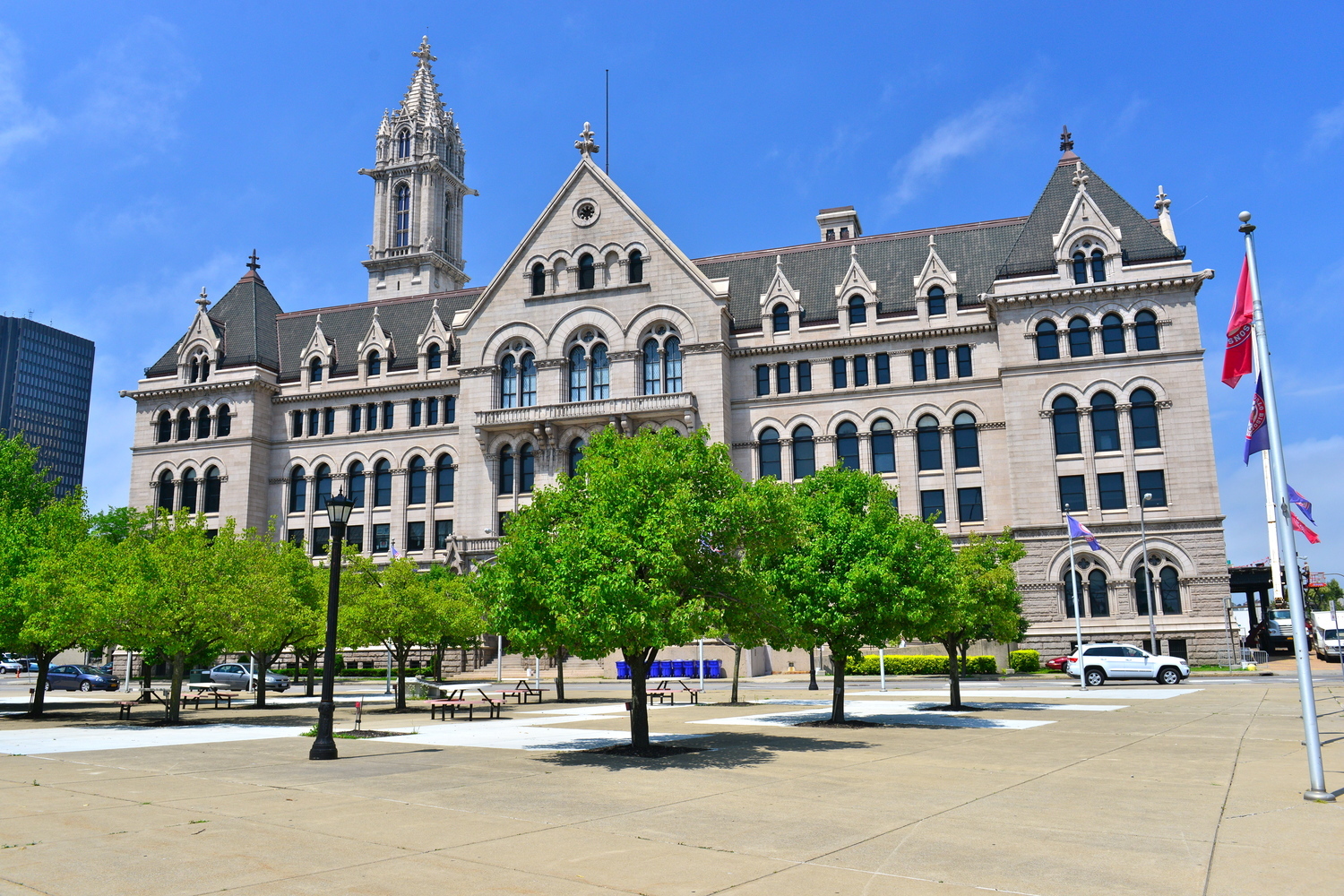Top 50 Universities in the United States: A Comprehensive Guide to Higher Education Excellence
Explore the top 50 universities in the US with this comprehensive guide. It highlights their academic strengths, campus culture, and admissions insights, helping students find the best fit for their higher education goals in a competitive landscape. Perfect for prospective undergraduates and beyond.

Discover the Most Prestigious Universities in the US for Higher Education
Choosing the right university is a pivotal step in shaping your academic and professional future. The United States boasts a vast array of higher education institutions, ranging from historic Ivy League universities to innovative research colleges. This detailed guide explores the top 50 universities in the US, highlighting their unique strengths, academic offerings, campus culture, and admissions competitiveness. Whether you prefer public or private institutions, science or liberal arts, this list provides valuable insights to aid your application decisions.
Understanding the nuances of each institution can help prospective students identify the best fit based on desired majors, campus environment, and career goals. It's important to note that admission to these elite universities remains highly competitive, but students with strong academic records, extracurricular achievements, and compelling personal statements have a chance to gain acceptance. Many of these universities also offer a diverse spectrum of undergraduate, master's, and doctoral programs across disciplines such as engineering, business, arts, sciences, law, and medicine.
Let’s delve into the detailed profiles of the 50 top universities in the US, from the renowned flagship state schools to private liberal arts colleges, providing comprehensive insights into what makes each institution unique and how they contribute to the landscape of American higher education.
50. University of Utah – Salt Lake City, UT
The University of Utah stands out as a leading public research university known for its groundbreaking work and affordable education. Located in Salt Lake City, it offers nearly 100 undergraduate, master’s, and doctoral programs spanning diverse fields such as exercise science, communications, psychology, engineering, and health sciences. The university is part of the prestigious Association of American Universities, a testament to its research excellence and academic standing.
The university emphasizes innovation, community engagement, and student success. Its research initiatives contribute significantly to scientific advancements, especially in healthcare and technology. Students benefit from a vibrant campus life, state-of-the-art facilities, and opportunities for internships and research collaborations with local industries. With its commitment to inclusivity and affordability, the University of Utah provides an attractive choice for students seeking quality education without the exorbitant costs associated with some private institutions.
49. Villanova University – Villanova, PA
Founded in 1842, Villanova University is the oldest Catholic research university in the United States. It boasts a rich history of academic excellence combined with a strong Catholic identity. The university offers over 60 bachelor’s degree programs and has a remarkable undergraduate graduation rate of 89.3% for its four-year programs and 92.1% over six years, reflecting its dedication to student achievement and success.
Villanova specializes in business, engineering, arts, and sciences, with particular strength in fields like finance, law, and communications. Its campus community emphasizes ethical leadership, community service, and personal growth. Students enjoy a comprehensive educational experience that includes internships, global study opportunities, and state-of-the-art facilities. The university’s reputation for producing morally grounded graduates makes it a preferred choice for those seeking a faith-based yet academically rigorous environment.
48. Ohio State University – Columbus, OH
As one of the largest and most diverse public research universities in the country, Ohio State University offers over 200 undergraduate majors, including engineering, data analytics, dance, business, and social sciences. Located in Columbus, Ohio, it attracts students from across the nation and around the world.
The university is renowned for its innovative research, extensive athletic programs, and vibrant campus life. It plays a crucial role in regional economic development and community service. Ohio State’s facilities continue to expand, offering students access to cutting-edge laboratories, libraries, and collaboration spaces. Its diverse academic offerings prepare students for careers in various industries, making it an ideal choice for students seeking a comprehensive, research-backed education.
47. Lafayette College – Easton, PA
Lafayette College is a private liberal arts college known for its rigorous academics and intimate campus setting. It offers approximately 40 undergraduate programs and around 50 majors, including sciences, engineering, social sciences, and humanities. The college emphasizes a personalized education through small class sizes and close faculty-student interactions.
Unique features include opportunities for dual majors, interdisciplinary studies, and customized curriculum pathways tailored to individual student interests. Lafayette encourages experiential learning, research projects, and study abroad experiences that foster global perspectives and leadership skills. The college’s commitment to academic excellence and student development has resulted in strong alumni networks and successful career placements.
46. Franklin W. Olin College of Engineering – Needham, MA
Specialized in engineering and innovation, Franklin W. Olin College is a private institution that emphasizes design, entrepreneurship, and multidisciplinary approaches. Founded in 1997 with vital funding from the Olin Foundation, the college maintains a faculty-to-student ratio of 1:8, fostering close mentorship and collaboration.
With a competitive acceptance rate of approximately 16%, Olin College attracts highly talented students passionate about engineering solutions that address global challenges. Its curriculum encourages hands-on projects, research, and collaborations with industry partners and NASA's Jet Propulsion Laboratory. Olin's forward-thinking approach and focus on leadership development prepare graduates to become innovators in engineering, science, and technology fields.
45. Washington and Lee University – Lexington, VA
Established in 1749, Washington and Lee University combines tradition with innovation. It offers strong programs in commerce, economics, and politics through its esteemed Williams School of Commerce, Economics, and Politics. Students can choose from a wide array of majors in the social sciences, humanities, and sciences, benefiting from a liberal arts-focused curriculum.
Known for its beautiful campus and rigorous academics, W&L prioritizes leadership, ethical decision-making, and community service. Its alumni often pursue careers in law, government, international relations, and business. The university encourages experiential learning, including internships, research projects, and global travel, to develop well-rounded graduates ready to contribute to society.
44. Harvey Mudd College – Claremont, CA
Harvey Mudd College is globally recognized for its STEM programs, particularly in science, engineering, and mathematics. Part of the Claremont Colleges consortium, it prides itself on producing high-earning graduates with strong technical skills. With a student body of approximately 900, Harvey Mudd offers a rigorous curriculum emphasizing interdisciplinary problem-solving, innovation, and research.
The college's dedicated faculty foster close mentorship, with a faculty-to-student ratio of about 1:8. Harvey Mudd’s emphasis on hands-on projects and real-world applications prepares students for careers in technology, engineering, and research. Its graduates often go on to prominent roles in academia, industry, and entrepreneurship.
43. Tulane University – New Orleans, LA
Founded in 1834 as a medical college, Tulane University has grown into a premier research university in the southern United States. It ranks among the top 2% for research globally, hosting multiple campuses and diverse academic schools including architecture, law, medicine, and liberal arts.
Located in the culturally vibrant city of New Orleans, Tulane offers students unique experiential learning opportunities through community service, internships, and global study programs. The university emphasizes interdisciplinary education, sustainability, and social justice. Its strong emphasis on research and community engagement prepares students for leadership roles across various sectors.
42. Babson College – Wellesley, MA
Specializing in entrepreneurship and business, Babson College boasts a 92% six-year graduation rate and a curriculum centered around innovation, leadership, and startup ventures. Located near Boston, it attracts students passionate about launching and managing new enterprises.
Babson emphasizes experiential learning, incubator programs, and real-world internships that provide students with practical entrepreneurial experience. The college’s alumni include successful entrepreneurs and business leaders, reflecting its reputation as a powerhouse in entrepreneurial education.
41. Hamilton College – Clinton, NY
Since becoming coeducational in 1978, Hamilton College has maintained a strong liberal arts focus. It offers 44 majors in fields such as economics, global studies, and political science. The college’s open curriculum allows students the flexibility to design their academic paths and engage in interdisciplinary studies.
Hamilton emphasizes close faculty mentorship, experiential learning, and global engagement. Its small student body encourages dynamic discussions and personalized attention, fostering a vibrant academic community dedicated to leadership and civic responsibility.
40. Davidson College – Davidson, NC
Founded in 1837, Davidson College is renowned for its rigorous academics, generous financial aid, and successful alumni, including Rhodes Scholars. It offers 31 majors and maintains a strong emphasis on undergraduate research, leadership, and community involvement.
Students participate in NCAA Division I sports and benefit from a tight-knit campus environment. Davidson’s commitment to excellence and student-centered approach makes it a distinguished liberal arts college in the southeastern US.
39. United States Naval Academy – Annapolis, MD
Established in 1845, the Naval Academy trains future officers of the U.S. Navy and Marine Corps. With an acceptance rate of approximately 8.5%, admission is highly competitive. The academy provides a world-class education free of charge in exchange for active service upon graduation.
Students undertake rigorous academics, leadership training, and physical fitness programs, preparing them for military and leadership careers. The Naval Academy’s proud traditions and strong alumni network contribute to its reputation as a premier institution for military leadership development.
38. College of William & Mary – Williamsburg, VA
Founded in 1693, William & Mary is the second-oldest college in America, often referred to as a Public Ivy due to its high academic standards and prestigious reputation. It offers over 45 undergraduate programs spanning arts, sciences, and social sciences. The school’s admissions are selective, with a roughly 38% acceptance rate.
The college emphasizes undergraduate research, leadership, and community service. Its historic campus, rich traditions, and vibrant intellectual environment attract students from all over the globe, preparing them for successful careers in law, government, business, and beyond.
37. Claremont McKenna College – Claremont, CA
Claremont McKenna College is a small private liberal arts college specializing in government, economics, and public policy. With an acceptance rate around 10%, it offers an intimate academic environment characterized by rigorous coursework and personalized mentorship.
The college fosters a strong sense of community, civic engagement, and leadership development. Its location within the Claremont Colleges consortium provides students with access to a wide range of courses, resources, and collaborative opportunities with neighboring institutions.
36. Swarthmore College – Swarthmore, PA
Swarthmore College is highly regarded for its liberal arts curriculum, research initiatives, and active involvement with the University of Pennsylvania. Founded in 1864, it emphasizes social responsibility, critical thinking, and academic excellence. Swarthmore students benefit from generous research grants, scholarships, and a collaborative learning environment.
Its strong focus on interdisciplinary studies and civic engagement prepares students for leadership roles in various sectors, including academia, government, and social entrepreneurship.
35. Bowdoin College – Brunswick, ME
Bowdoin College is known for its programs in mathematics, economics, government, and environmental studies. Offering 40+ majors with an acceptance rate of approximately 9%, Bowdoin combines rigorous academics with a supportive campus community.
The college emphasizes sustainability, global engagement, and leadership. Its close-knit environment encourages meaningful mentorship, experiential learning, and lively campus debates, fostering well-rounded graduates ready for the complexities of the modern world.
34. Wellesley College – Wellesley, MA
Established in 1870, Wellesley College is the largest women’s liberal arts college in the United States. It offers a comprehensive education in arts, sciences, and social sciences, with an acceptance rate of around 22%. Wellesley emphasizes empowerment, leadership, and social responsibility.
The college’s vibrant community and extensive alumni network enable students to excel academically and professionally. Wellesley fosters strong bonds among students and offers numerous resources for research, internships, and leadership development.
33. U.S. Military Academy – West Point, NY
Founded in 1802, West Point is a prestigious public service academy dedicated to training future Army officers. With an acceptance rate of less than 10%, admission is highly selective. The academy offers a comprehensive education that combines academics, military training, and physical fitness.
Graduates receive a commission as officers in the U.S. Army and are committed to national service. West Point’s storied traditions, leadership training, and rigorous academics prepare students for distinguished military careers and leadership roles in civilian sectors as well.
32. Pomona College – Claremont, CA
Pomona College is renowned for its intimate liberal arts environment with a highly selective admissions process—acceptance rate around 7.4%. It offers approximately 50 majors, including arts, humanities, social sciences, and natural sciences.
Located within the Claremont Colleges consortium, Pomona provides students with extensive resources, cross-registration opportunities, and collaborative research. The college emphasizes critical thinking, social responsibility, and personal growth, preparing graduates to excel in diverse fields.
31. Williams College – Claremont, MA
Founded in 1793, Williams College consistently ranks among the top liberal arts colleges in the US. It receives over 10,000 applications annually and maintains a low acceptance rate of around 12%. The college emphasizes close faculty-student mentorship, small class sizes, and a broad liberal arts curriculum.
Williams fosters a tight-knit community that values intellectual curiosity, leadership, and civic engagement. Its alumni include leaders in government, business, and academia, reflecting the college’s strong reputation for producing well-rounded, successful graduates.
30. Amherst College – Hampshire County, MA
Part of the Five College Consortium, Amherst College is a highly selective private liberal arts college with an acceptance rate of about 11%. It offers a flexible curriculum featuring diverse academic organizations, research opportunities, and global programs.
Amherst emphasizes academic excellence, collaborative learning, and civic responsibility. Its resources include world-class faculty, extensive library collections, and vibrant student organizations dedicated to leadership and social justice.
29. University of Notre Dame – Notre Dame, IN
Established in 1842, Notre Dame is one of the most recognized Catholic universities in the world. It offers excellent undergraduate and graduate programs, emphasizing leadership, ethics, and service. The university’s holistic approach integrates rigorous academics with spiritual development and extracurricular involvement.
Notre Dame alumni include influential leaders across sectors, and its campus culture promotes community, faith, and intellectual growth. The institution’s research centers and facilities support cutting-edge work across disciplines, especially in engineering, law, and business.
28. University of Virginia – Charlottesville, VA
Founded by Thomas Jefferson in 1819, the University of Virginia is a UNESCO World Heritage Site known for academic excellence and historic significance. UVA offers a wide range of top-ranked programs, including arts, sciences, law, and business. Its selective admissions process attracts students with exceptional academic records.
The university encourages public service, research, and leadership development. Its historic grounds, strong alumni network, and vibrant campus life make UVA a top choice for students seeking tradition and innovation.
27. Tufts University – Medford, MA
Founded in 1852, Tufts is renowned for its commitment to research, innovation, and global engagement. Its highly selective admission rate of about 15% attracts academically talented students from across the world. Tufts offers a comprehensive array of undergraduate programs in arts, sciences, and professional fields like international relations, medicine, and engineering.
The university emphasizes interdisciplinary studies, experiential learning, and activism, preparing students to tackle complex global challenges. Its strong connections with governmental agencies, NGOs, and industries help provide meaningful internships and research opportunities.
26. University of North Carolina – Chapel Hill, NC
One of the oldest public universities in the US, UNC-Chapel Hill offers 60 PhD programs and 160 master’s degrees across various disciplines, including journalism, public health, law, and business. Known for academic excellence and a vibrant campus community, UNC combines research with a topranked campus life experience.
The university promotes diversity, inclusion, and community service, producing leaders across sectors. Its competitive research programs and extensive alumni network make UNC a desirable destination for students seeking both quality education and a supportive environment.
25. Dartmouth College – Hanover, NH
Founded in 1769, Dartmouth is an Ivy League university renowned for its intimate setting and strong emphasis on undergraduate teaching. With small class sizes, personalized mentoring, and a focus on arts, sciences, and social sciences, Dartmouth offers a rich collegiate experience.
The college’s signature programs include environmental studies, international affairs, and creative writing. Dartmouth’s commitment to leadership, community service, and innovation prepares students to excel in diverse careers and graduate studies.
24. Vanderbilt University – Nashville, TN
Established in 1873, Vanderbilt combines rigorous academics with a vibrant campus atmosphere. It offers over 70 undergraduate programs, including education, engineering, arts, and sciences. The university places a strong emphasis on research, civic engagement, and leadership development.
Vanderbilt boasts extensive research centers, collaboration with industries, and numerous internship opportunities. Its strategic location in Nashville provides students with a thriving arts scene, diverse community, and professional networking options.
23. Georgetown University – Washington, DC
Founded in 1789, Georgetown University is renowned for its programs in international relations, law, and public policy. Its location in the heart of Washington, DC, provides students unparalleled access to government agencies, think tanks, and corporations.
Georgetown emphasizes diversity, public service, and leadership. Its global programs, extensive alumni network, and research centers prepare students for impactful careers in diplomacy, government, and international business.
22. Washington University in St. Louis – MO
Known as WashU, this university offers strong programs in psychology, computer science, and anthropology, with a focus on research and experiential learning. Its vibrant campus life includes diverse student organizations, internships, and research projects that foster a dynamic academic environment.
The university’s strong commitment to innovation and interdisciplinary studies positions it as a leading institution for students aiming to make significant contributions in their fields.
21. Rice University – Houston, TX
Founded in 1912, Rice University is recognized for its strong STEM programs, particularly in engineering, biochemistry, and economics. It prides itself on a rigorous curriculum, close faculty mentorship, and cutting-edge research opportunities.
Located in Houston, Rice benefits from close ties to the energy, medical, and tech industries, providing students with internships and collaborative projects. The university emphasizes a culture of innovation, entrepreneurship, and community engagement.
20. Emory University – Atlanta, GA
Emory University is a top-ranked institution known for its health sciences, liberal arts, and professional programs. It features a low faculty-to-student ratio, emphasizing personalized mentorship and research participation. Emory’s proximity to Atlanta’s healthcare and business hubs offers unique internship and employment opportunities.
The university promotes global health, ethical leadership, and social justice through various initiatives and partnerships, preparing students to excel in complex, interconnected environments.
19. California Institute of Technology – Pasadena, CA
Caltech is a world leader in science and engineering research, with advanced facilities like NASA’s Jet Propulsion Laboratory. Its small student body and close faculty interactions foster an environment of innovation and discovery.
The college emphasizes interdisciplinary research, problem-solving, and entrepreneurship. Graduates often pursue careers in academia, industry, and space exploration, and Caltech’s reputation attracts top faculty and students globally.
18. Boston College – Chestnut Hill, MA
Established in 1863, Boston College is a highly selective institution that offers 58 majors across various disciplines, including engineering, management, theology, and liberal arts. Its academic rigor combines with a commitment to social justice, ethics, and global engagement.
Students benefit from extensive research, internships, and service-learning opportunities. Boston College’s vibrant campus and strong alumni network foster professional success and leadership development.
17. Brown University – Providence, RI
Founded in 1764, Brown is known for its innovative curriculum that emphasizes student choice, interdisciplinary studies, and independent research. The university’s open curriculum allows students to design their academic paths with minimal core requirements.
Brown’s commitment to creativity, activism, and academic exploration attracts students interested in pushing boundaries across traditional disciplines. Its strong emphasis on research, diversity, and community engagement helps prepare graduates for leadership roles in a rapidly changing world.
16. University of Michigan – Ann Arbor, MI
A flagship public research university, Michigan offers over 250 undergraduate programs and numerous graduate certificates and degrees. Its extensive research enterprise supports innovation in engineering, business, health sciences, and the arts.
Michigan University fosters experiential learning, entrepreneurship, and global engagement. Its diverse student body and strong alumni network contribute to its reputation as a top-tier institution for comprehensive education and career preparation.
15. Carnegie Mellon University – Pittsburgh, PA
Founded in the early 1900s, Carnegie Mellon is renowned for its interdisciplinary approach to problem-solving in technology, arts, and sciences. It emphasizes innovation, entrepreneurship, and collaboration with industry partners like NASA and major corporations.
CMU offers cutting-edge programs in computer science, arts, robotics, and business. Its strong emphasis on research and hands-on projects prepares students for leadership in emerging fields.
14. Northwestern University – Evanston, IL
Northwestern’s distinguished programs include top-ranked journalism, music, engineering, and communications. Located just outside Chicago, it offers vibrant campus life, diverse research opportunities, and strong industry connections.
The university champions interdisciplinary education and experiential learning, fostering innovation and leadership across disciplines. Its collaborative environment attracts students eager to engage in complex problem-solving and creative pursuits.
13. Johns Hopkins University – Baltimore, MD
A leader in biomedical research, Johns Hopkins offers a broad range of graduate and undergraduate programs, especially in medicine, public health, and engineering. Its flexible study options and extensive research centers support breakthrough discoveries.
Located in Baltimore, it provides numerous internship and community engagement opportunities. Johns Hopkins is synonymous with excellence in research, healthcare, and science innovation.
12. Duke University – Durham, NC
Founded in 1838, Duke combines rigorous academics with a lively campus community. Its 53 undergraduate majors include broad options in arts, sciences, and professional fields like business and engineering.
The university emphasizes research, leadership, and global engagement. Its strong athletic programs, research centers, and close connections to the Research Triangle Park provide students with real-world experiences and career pathways.
11. Cornell University – Ithaca, NY
Founded in 1865, Cornell is a member of the Ivy League known for its diverse academic offerings—122 minors and 80 majors—including engineering, agriculture, and liberal arts. Its faculty has received numerous awards, including Nobel Prizes and Pulitzers.
Cornell emphasizes research, innovation, and entrepreneurship. Its expansive campus, strong alumni network, and interdisciplinary environment make it a top choice for ambitious students aiming to lead in academia, industry, and government.
10. University of Chicago – Chicago, IL
Since 1856, the University of Chicago has built a reputation for rigorous academics and pioneering research, especially in economics, law, and social sciences. Its distinctive Core Curriculum emphasizes critical thinking and intellectual exploration.
The university attracts high-achieving students nationwide and worldwide and offers numerous prestigious fellowships and research opportunities. Its influential faculty and alumni include Nobel laureates, government leaders, and entrepreneurs.
9. University of Pennsylvania – Philadelphia, PA
Founded in 1740 by Benjamin Franklin, UPenn excels across various disciplines, including business, law, medicine, and the social sciences. Its integrated academic programs promote innovative research and leadership.
UPenn’s extensive resources, vibrant campus life, and strong global networks prepare students for careers spanning finance, healthcare, law, and public policy. Its entrepreneurial ecosystem and diverse student body underscore its reputation as a top-tier institution.
8. Princeton University – Princeton, NJ
Since 1746, Princeton has maintained its status as a prestigious Ivy League university known for academic excellence, high faculty-to-student ratios, and impactful research. Its focus on undergraduate education ensures personalized mentorship and access to top scholars.
Alumni include numerous Nobel laureates, governors, and business leaders. Princeton’s campus boasts historic architecture, strong commitment to public service, and leadership training across disciplines.
7. Columbia University – New York City, NY
A leading Ivy League school established in 1754, Columbia is renowned for its programs in journalism, medicine, law, and engineering. Located in the heart of Manhattan, it offers unmatched opportunities for internships, research, and cultural experiences.
Columbia emphasizes innovation, diversity, and global engagement. Its faculty and alumni have shaped history through groundbreaking research and leadership roles across sectors.
6. Yale University – New Haven, CT
Founded in 1701, Yale is celebrated worldwide for its strength in arts, social sciences, and biomedical sciences. Its residential college system fosters community, mentorship, and interdisciplinary collaboration.
Yale’s research centers and extensive library collections support groundbreaking scholarship. Its alumni include Nobel laureates, US Presidents, and influential cultural figures, emphasizing its global academic influence.
5. University of California, Los Angeles (UCLA) – Los Angeles, CA
UCLA is a top-tier public research university with a vibrant campus in LA. Known for programs in psychology, linguistics, communication, and film, it attracts a highly competitive applicant pool worldwide.
UCLA excels in research, arts, and professional training, offering a dynamic student experience with numerous clubs, internships, and career services. Its urban campus and proximity to the entertainment industry provide unique opportunities for students in media, arts, and sciences.
4. University of California, Berkeley (UCB) – Berkeley, CA
Established in 1868, Berkeley is a pioneering public university recognized for its research impact. It offers over 100 graduate programs, including business, engineering, law, and environmental sciences.
Berkeley champions social activism, diversity, and innovation, with extensive research centers and a global reputation for academic rigor. Its alumni include influential leaders, Nobel laureates, and entrepreneurs shaping the future.
3. Massachusetts Institute of Technology (MIT) – Cambridge, MA
Founded in 1861, MIT is globally acclaimed for its cutting-edge research and innovation in science, engineering, and technology. It boasts top programs in physics, mathematics, computer science, and entrepreneurship.
Research collaborations include NASA, industry giants, and startups. Its entrepreneurial ecosystem and emphasis on problem-solving prepare students to lead technological advancements and scientific breakthroughs worldwide.
2. Stanford University – Stanford, CA
With an acceptance rate below 5%, Stanford is synonymous with innovation, entrepreneurship, and research excellence. Located in the heart of Silicon Valley, it provides students with unparalleled opportunities in technology, business, and social impact.
Students participate in projects like solar car racing, startup incubators, and cutting-edge research labs. Its influential alumni include founders of major tech firms, Nobel laureates, and government leaders, making Stanford a hub for future changemakers.
1. Harvard University – Cambridge, MA
Founded in 1636, Harvard is the oldest higher education institution in the US and remains a symbol of academic excellence globally. Its extensive resources, distinguished faculty, and influential alumni shape industries, governments, and academia worldwide.
Harvard offers a broad range of programs, including law, medicine, business, arts, and sciences, fostering critical thinking, leadership, and social impact. Its historic campus and global reputation continue to attract ambitious students from all corners of the world.





